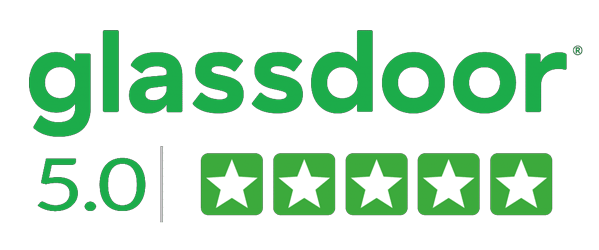
Why does anyone get rejected in the interview?
There could be various reasons why you may be experiencing rejection in job interviews. Here are some common factors that could potentially contribute to this.
But as we can’t tell you how you missed your previous interview but we are going to prepare you for your next interview like you never did before.
In today’s competitive job market, securing an interview can be challenging, and facing rejection can be disheartening.
We will shed light on common pitfalls to avoid. Whether you are a recent graduate, a career changer, or a seasoned professional, join us as we delve into the complexity of job interviews and discover how to navigate the hiring process successfully.
So, let’s dive in and uncover the truth behind interview rejections and the elusive “guaranteed interview scheme.”
Why did I get rejected?
- Lack of qualifications or skills
If you do not possess the necessary qualifications or skills for the job you are applying for, it may result in rejection during the interview process.
Employers often look for candidates who meet the job’s specific requirements, including education, experience, and technical skills.
- Poor preparation
If you are not adequately prepared for the interview, it may result in a lack of confidence and difficulty answering questions effectively.
We will explain how to prepare for an interview later.
- Poor interpersonal skills
Your ability to connect with the interviewer and build rapport is crucial.
If you struggle with interpersonal skills, such as not listening attentively, interrupting, or failing to engage with the interviewer, it may affect your chances of getting selected.
- Cultural fit
Many employers assess whether a candidate will fit well with their organizational culture. If you do not align with the company’s values, mission, or work culture, it could result in rejection.
- Competitive job market
In some cases, the job market may be highly competitive, and there could be several qualified candidates applying for the same position, resulting in rejection despite your qualifications and performance.
How to ace an interview?
Interviews can be stressful, especially with the inclusion of behavioural interviews that assess your personality and situational aptitude alongside your qualifications, experience, and goals.
Nevertheless, the fundamentals of putting your best foot forward largely remain unchanged.
Learn how to ace an interview with a few steps that will help you stand out and succeed.
Research the company
Familiarize yourself with the company’s mission, values, products/services, and recent news. This will help you tailor your responses to the company’s culture and needs.
Dress appropriately
Dress professionally, according to the company’s dress code. Make sure your appearance is tidy and polished, as it creates a positive impression.
What to wear to an interview?
Here are some general guidelines:
- Stick to conservative colours. Neutral or dark colours are the best.
- Dress one level up from the company’s dress code.
- Wear clean and well-fitting clothes.
- Pay attention to footwear. Wear closed-toe shoes that are clean and polished.
Practice common interview questions
Prepare answers to common interview questions, such as “Tell me about yourself,” “Why are you interested in this position?” and “What are your strengths and weaknesses?” Practice your responses to sound confident and articulate.
We will discuss how to answer interview questions separately later in this article.
Highlight your qualifications
Emphasize your relevant skills, experiences, and achievements that are directly related to the job you’re applying for. Provide specific examples to support your claims.
Ask thoughtful questions
Prepare thoughtful questions to ask the interviewer about the company, team, and role. This demonstrates your genuine interest and engagement.
We will explain further about this point later.
Show enthusiasm
Show genuine enthusiasm and interest in the company and the position. Express your motivation and passion for the opportunity.
Demonstrate good communication skills
Maintain eye contact, listen attentively, and speak clearly and concisely. Avoid interrupting and be mindful of your body language.
Be authentic
Be yourself and be honest in your responses. Avoid exaggerating or providing false information.
Follow up
Send a thank-you email or note to the interviewer after the interview to express appreciation for the opportunity and reiterate your interest in the position.
Now, you are ready to ace an interview. But, you are probably struggling to know how to answer interview questions.
Let us explain how.
How to answer interview questions!
Answering interview questions effectively is crucial to a successful job interview. Here are 10 tips on what to do and what not to do in an interview.
To do
Understand the question: Listen carefully to the interviewer’s question and make sure you fully understand it before you begin to answer. Ask for clarification if needed.
Use the STAR method: When answering behavioural or situational questions, use the STAR method (Situation, Task, Action, Result). Describe the situation or task, explain the action you took, and highlight the results you achieved.
Be concise: Be mindful of the interview time and keep your responses concise and to the point. Avoid rambling or going off on tangents.
Practice good body language: Maintain eye contact, sit straight, and use confident and engaging body language.
Show enthusiasm: Demonstrate your genuine interest in the position and the company by showing enthusiasm in your answers.
Not to do
Being late: Arriving late to an interview can leave a negative impression and convey a lack of professionalism.
Being unprepared:
Failing to research the company, the role, and the industry can indicate a lack of interest and preparation.
Being overly casual or unprofessional: Even if the interview has a relaxed atmosphere, it’s important to maintain professionalism. Avoid using slang, inappropriate language, or overly casual behaviour.
Being dishonest: Avoid lying or exaggerating your qualifications. Employers value honesty and integrity, and dishonesty can be discovered later in the hiring process, which can have negative consequences.
Being overly boastful or arrogant: Avoid coming across as overly boastful or arrogant. Be confident, but also humble and respectful.
One last tip, you need to ask questions to the interviewer about the job. Furthermore, here is a guideline on what questions to ask in an interview.
Questions to ask the interviewer
Asking questions is a two-way street. It’s an opportunity for you to assess if the company and role are the right fit for you as well.
So be attentive, engaged, and curious during the interview, and use your questions to gather valuable information to make an informed decision if you receive a job offer.
Examples:
- Can you tell me more about the company’s culture and values?
- What are the key responsibilities of this role?
- What are the opportunities for professional development and growth in this role?
- How is success measured in this role?
- Can you tell me about the typical career progression for someone in this role or department?
For more questions to ask, check the Questions You Must Ask In The End Of Your Interview.
In conclusion:
acing a job interview requires careful preparation, thoughtful responses, and a professional demeanour. By following the tips outlined in this article, you can increase your chances of getting accepted in an interview.
Remember, stay positive, believe in yourself, and showcase your skills and qualifications during the interview. Good luck!
You can also read:


